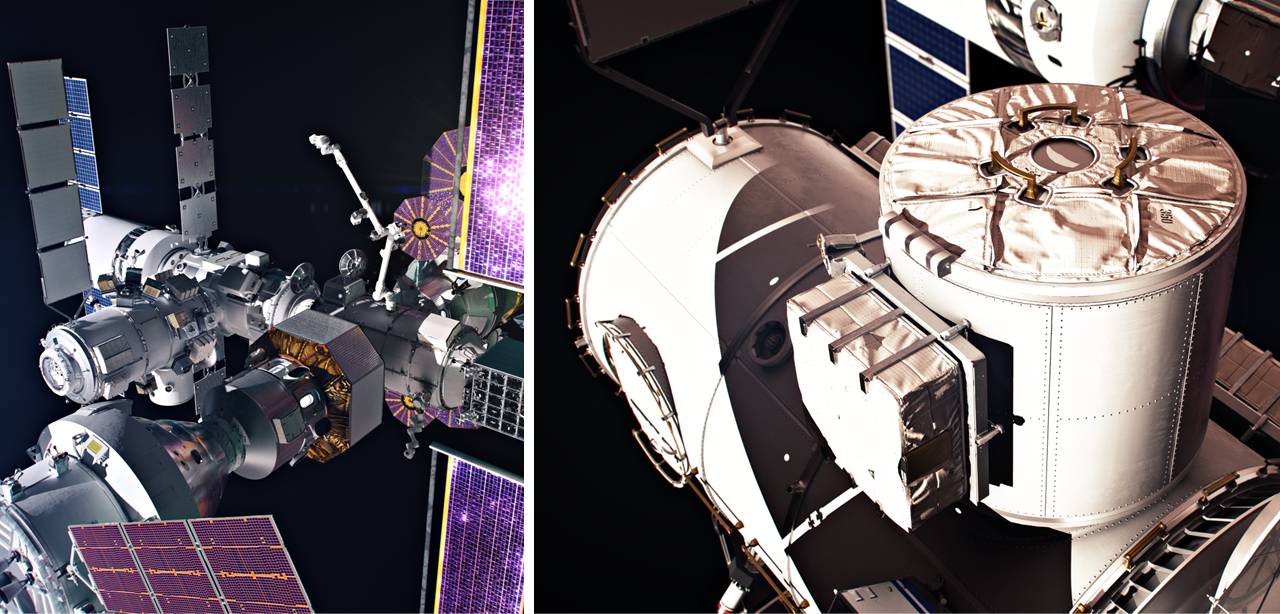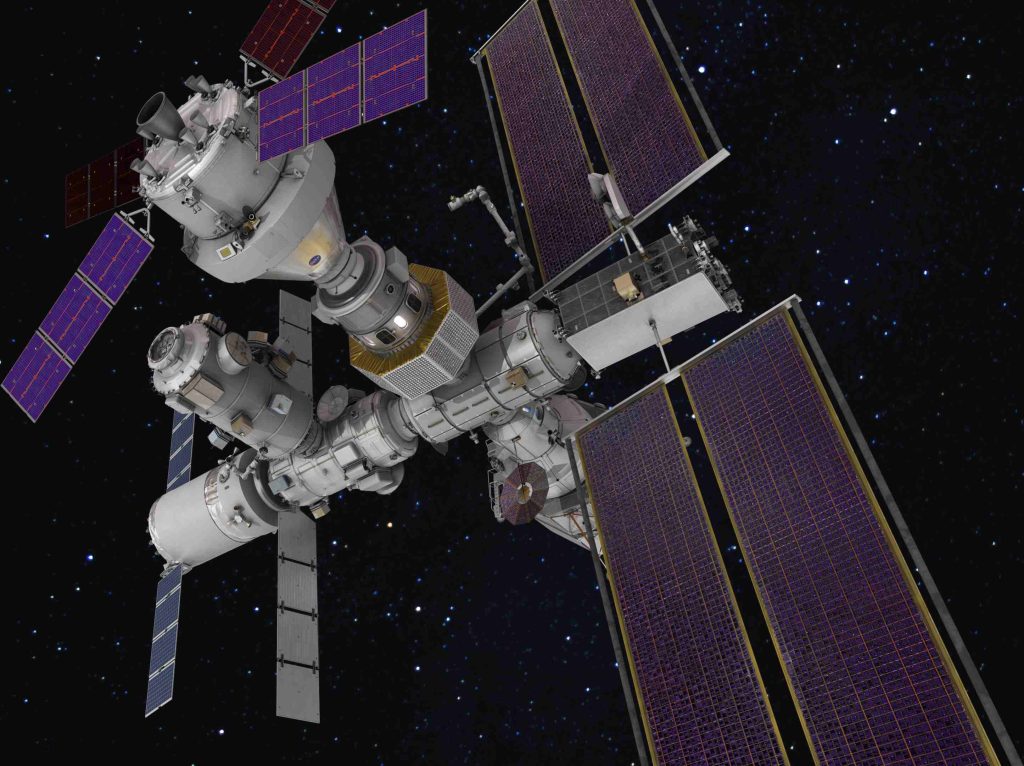NASA Partners With UAE For Gateway Airlock
8th Jan 2024
NASA’s Artemis mission will soon see humans, once again, set foot on the lunar surface. The mission is constantly evolving and in the latest development: the United Arab Emirates’ (UAE) Mohammed bin Rashid Space Centre (MBRSC) will build the airlock for Gateway.
In essence, Gateway is a Moon-orbiting space station that will facilitate NASA’s – and its partner nations – exploration of the lunar surface. MBRSC’s partnership will also involve many other elements, such as “engineering support”, to ensure the sustained lifetime of the space station.
Chair of the US’ National Space Council, Vice President Kamala Harris, celebrated the UAE partnership: “I have made it a priority to enhance international cooperation in space. Today’s announcement and partnership between the United States and United Arab Emirates advances this important work.”
She continued: “By combining our resources, scientific capacity, and technical skill, the U.S. and UAE will further our collective vision for space and ensure it presents extraordinary opportunities for everyone here on Earth.”
Collaborating With MBRSC For Gateway Airlock
Announced on 7th January, NASA stated that MBRSC will be partnering on the development of Gateway. As such, they will be delivering the ‘Crew and Science Airlock Module’. Equally, the collaboration will also include the introduction of one UAE astronaut who will join future Artemis missions. Primarily, the airlock will enable astronauts to fulfil integral spacewalks and servicing; it will also ensure astronauts can live on the station safely.
NASA said: “the airlock will allow crew and science research transfers to and from the habitable environment.” That is, providing astronauts with a safe access point to “pressurised crew modules” after venturing into the “vacuum of space”. In-space missions will be an essential feature of Gateway. NASA said: “these transfers will support broader science in the deep space environment, as well as Gateway maintenance.”
Artemis & Gateway: The First Lunar-Orbital Space Station

NASA’s Artemis mission is a major ongoing project featuring many international space organisations. Namely, the European Space Agency (ESA), Japan’s space agency, JAXA, the Canadian Space Agency (CSA), and more recently, the UAE. Gateway will play a major part in the mission success as “humanity’s first space station that will orbit the Moon,” NASA said.
The mission aims to put boots back on the Moon’s surface as well as explore the Moon’s uncharted southern regions. To do so, NASA will use the forthcoming Blue Origin Artemis Lander, Blue Moon, that docks with Gateway, to allow unbridled access to the Lunar Surface. NASA has also been testing their electric engine, AEPS, that will propel Gateway during its 15-year orbital lifespan. Additionally, NASA is aiming to establish Moon bases, and use the Earth’s neighbour as a hopping point to Mars.
To ensure global parties can undertake their aforementioned plans, “Gateway will support sustained exploration and research in deep space”, NASA said. Adding: “[Gateway will also] provide a home for astronauts to live and work, including a staging point for lunar surface missions.”
Not The First Time NASA Has Worked With The UAE
Since 2019, the US and UAE have continued to cement their active partnership in “human spaceflight” efforts. Initially, the allyship began when the International Space Station welcomed UAE astronaut, Hazzaa Almansoori. In 2023, another UAE astronaut, Sultan Al Neyadi, was also hosted onboard the ISS.
Al Neyadi was a member of the SpaceX Crew-6 mission and assisted in research “that advances human knowledge and improves life on Earth”. NASA said UAE was one of the first nations to sign the Artemis Accords back in 2020. Moreover, NASA collaborated with the UAE on Mars research, which could be used to propel NASA’s ambition of future odysseys to the red planet.







Thank you for your comment! It will be visible on the site after moderation.